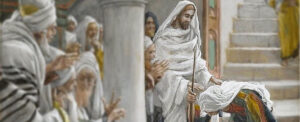Christopher Jones at Gates of Nineveh writes:
Christian pacifism has raised its profile in recent years, likely prompted by dissatisfaction with increasing political polarization, and promoted by some influential writers. Ideas promoted in the past century by Cecil John Cadoux and John Howard Yoder with little headway have found a modern defender in Stanley Hauerwas and a popularizer in Shane Claiborne, whose books, speaking tours and radical lifestyle have attracted many admirers if few followers.
Central to all of these authors’ ideas is the concept of the “fall of the church.” They hold that early Christianity was pacifist and anarchist in character, and rejected the ideas of military service and loyalty to the state. As Christianity came to be accepted by the Roman government at around the time of Constantine, the church became corrupted by its relationship with state power. After Constantine the church became willing to acquiesce to state power and wage war, execute people in the name of the state, force conversions, and recognize the authority of rulers other than Jesus. According to Yoder, the behavior of the early church is important because the early Christians “read the Bible in a first-century context. They read the New Testament in the same world in which it was written, in the same language in which it was written. They probably read it, therefore, with more understanding than we do. Hence, how they read the New Testament is helpful to us in our reading of the New Testament, whatever the limits of their faithfulness.”
While the emperors and soldiers of the late Empire clearly used Christian symbolism, what about the army before Constantine?
I shall leave the theological portion of this debate for other websites. What I will do is examine the central historical claim of the “fall of the church” thesis: That Christians before the era of Constantine were pacifists who did not enlist in the Roman military&hallip;






